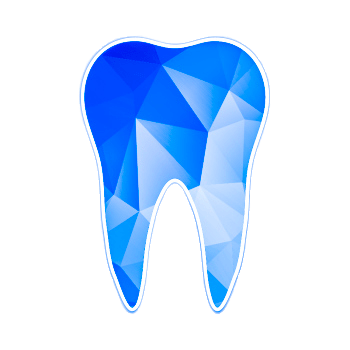Dental pain can be one of the most excruciating and disruptive experiences. It often strikes unexpectedly, leaving you in discomfort and distress. Whether it’s a sharp toothache, a broken tooth, or swelling of the gums, dental emergencies require prompt attention. Understanding how to manage dental pain until you can see a dentist is crucial for maintaining your oral health and overall well-being. At Nairobi Sterling Dental Clinic, we are here to provide you with instant and effective help in instances of emergency pain management.
Causes and symptoms
Dental pain can arise from various conditions, each with its own set of symptoms. The most common causes of dental pain include:
- Tooth decay – Cavities, caused by bacteria that erode the enamel, are a frequent source of tooth pain. The pain often starts as mild sensitivity and can progress to severe discomfort as the decay reaches deeper layers of the tooth.
- Gum disease – Gingivitis and periodontitis, the early and advanced stages of gum disease, can cause pain, swelling, and bleeding in the gums. Without treatment, gum disease can lead to tooth loss and other complications.
- Tooth fractures or chips – Accidents or biting down on hard objects can cause teeth to crack or chip, leading to sharp, intense pain. The exposed nerves in the tooth are sensitive to temperature changes and pressure.
- Abscesses – A dental abscess is a pocket of pus caused by a bacterial infection. It can occur in the tooth or gum, leading to severe pain, swelling, and even fever.
- Impacted wisdom teeth – When wisdom teeth don’t have enough space to emerge properly, they can become impacted, causing pain, swelling, and sometimes infection.

Immediate steps to manage dental pain
When dental pain strikes, the first priority is to alleviate the discomfort and prevent the situation from worsening. Here are some steps you can take to manage the pain until you can see a dentist:
- Rinse with warm salt water – A simple yet effective remedy, rinsing your mouth with warm salt water can help reduce inflammation and cleanse the affected area. Dissolve half a teaspoon of salt in a glass of warm water and swish it around your mouth for about 30 seconds before spitting it out.
- Apply a cold compress – If you’re experiencing swelling, applying a cold compress to the outside of your cheek can help reduce the swelling and numb the pain. Wrap ice in a cloth and hold it against the affected area for 15 minutes, then take a break for 15 minutes before reapplying.
- Use over-the-counter pain relievers – Non-prescription pain relievers like ibuprofen or acetaminophen can help manage the pain temporarily. Always follow the recommended dosage instructions and consult with a healthcare professional if you have any concerns about medication use.
- Apply clove oil – Clove oil is a natural remedy known for its analgesic and antibacterial properties. You can apply a small amount of clove oil to a cotton ball and place it directly on the affected tooth or gums to numb the pain. Be cautious with the amount, as too much can cause irritation.
- Elevate your head while sleeping: Keeping your head elevated can prevent blood from rushing to the affected area, which might reduce throbbing pain during sleep. Propping up with extra pillows can make a noticeable difference.
When to seek immediate dental care
While these remedies can provide temporary relief, they are not substitutes for professional dental care. Certain symptoms indicate that you should seek immediate dental attention:
- Severe pain – If the pain is intense and unrelenting, it could be a sign of a serious issue like an abscess or nerve damage.
- Swelling – Persistent swelling in the gums or face, especially if accompanied by fever, may indicate an infection that requires prompt treatment.
- Bleeding – Continuous bleeding, especially after a trauma or injury, needs to be addressed by a dentist as soon as possible.
- Loose Teeth – If a tooth feels loose or has been knocked out, you should seek emergency dental care to try to save the tooth.

Preventing future dental emergencies
Preventing dental emergencies involves taking proactive steps to maintain your oral health. Regular dental check-ups, good oral hygiene, and a healthy diet are essential for keeping your teeth and gums in good condition. Here are some tips to prevent future dental issues:
- Brush and floss regularly – Brushing your teeth twice a day with fluoride toothpaste and flossing daily can help remove plaque and prevent cavities and gum disease.
- Avoid hard foods and objects – Biting down on hard foods, ice, or non-food objects like pens can crack or chip your teeth. Be mindful of what you put in your mouth.
- Wear a mouthguard – If you play contact sports or grind your teeth at night, wearing a mouthguard can protect your teeth from injury.
- Limit sugary foods and drinks – Sugar fuels the bacteria that cause tooth decay. Reducing your intake of sugary snacks and drinks can lower your risk of cavities.
Cost of emergency pain management,
Emergency dental pain management requires a dental consultation with our dentists first. The cost of the consultation is Ksh.3,000 per consultation. Further directives will be given during or after the consultation and the ensuing treatment costs will be provided. We are mindful of emergencies, and hence, we do not charge extra for last-minute appointments.
Being prepared and knowing how to manage dental pain in an emergency can make a significant difference in your comfort and health. While home remedies can offer temporary relief, professional dental care is essential for addressing the root cause of the pain and preventing future issues. You can visit Nairobi Sterling Dental Clinic in such times, and we shall help you find a viable and effective solution to your problem. We are located at the Park Suites Building, in Parklands, Nairobi. You can also contact us for enquiries or guidelines on how best to handle your situations.
